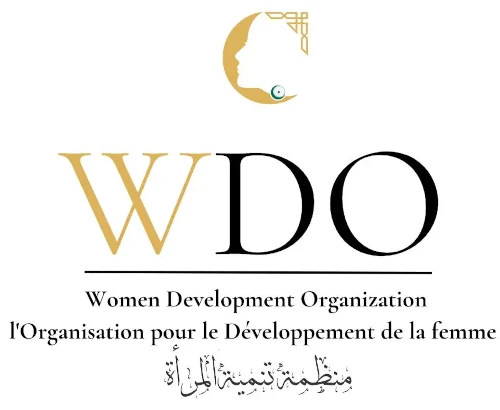Dr. Afnan Al-Shuaiby, Executive Director of the Women's Development Organization, welcomed today, Dr. Ghada Waly, Executive Director of the United Nations Office on Drugs and Crime and Director-General of the United Nations Office at Vienna, on her first visit to the headquarters of the WDO in Cairo, She expressed her pleasure with the ongoing cooperation and partnership between the two entities, and stressed on the continuation of work towards achieving the common goals in the intersecting fields of work as well as the implementation of work plans and programs that serve women and girls.
Dr. Afnan Al-Shuaiby - The Executive Director of The WDO met UN Women Executive Director Ms. Sima Bahous on her first official visit to UN Women HQ since assuming her role earlier this year. They both discussed the importance of the ongoing cooperation between the two entities and their commitment to empower women and girls.
Mr. Mohammed bin Abd Rabbo Al-Yami, Director General of the Union of News Agencies of the OIC, received Dr. Afnan Al-Shuaiby , Executive Director of WDO in the Member States of the Organization of Islamic Cooperation, at the Union's headquarters in Jeddah - Kingdom of Saudi Arabia.
Organization (WDO) in the Member States of the Organization of Islamic Cooperation (OIC), visits His Excellency Mr. Hussein Ibrahim Taha, Secretary General of the Organization of Islamic Cooperation (OIC) at the organization's headquarters in Jeddah - Saudi Arabia, on her first official visit.
Dr. Afnan Al-Shuaiby, The Executive Director of WDO, met with H.E Ambassador Dr. Saleh bin Hamad Al-Suhaibani, Permanent Representative of the Kingdom of Saudi_Arabia to Organisation of Islamic Cooperation (OIC) , at the Mission’s HQs in Jeddah, within the framework of her visit to the OIC.
Member States of the Organization of Islamic Cooperation, signed a memorandum of understanding with His Excellency, Dr. Qutb Mustafa Sano , the Secretary-General of the International Islamic Fiqh Academy at the headquarters of the General Secretariat of the Academy in Jeddah- KSA.
Dr. Afnan Al-Shuaiby, Executive Director of the Women Development Organization, met with Ambassador Diab Al-Louh, the Ambassador of the State of Palestine in Egypt and its permanent representative to the Arab League.
Executive Director, met with H.E Dr. Amal Al-Hamad, advisor on local and international cooperation for the Arab Planning Institute in Kuwait, on a first of its kind visit to the organization's headquarters in Cairo.
Dr. Afnan Al-Shuaiby, Executive Director of the Women's Development Organization, met with Ambassador Abdullah Al-Rahbi, the Ambassador of Oman to Egypt, at the embassy's headquarters in Cairo.
It is no secret that women are way more likely to face discrimination at work because of their gender. From getting paid less for doing the same job to being passed over for the most important assignments, there are numerous ways in which women are being discriminated against in work because of their gender.
Roughly four in every ten working women say that they have experienced some form of gender discrimination at work, according to a survey conducted by Pew Research Center. According to the survey, 25% said that they earned less than someone doing the same job, and 23% were treated as if they were incompetent.















